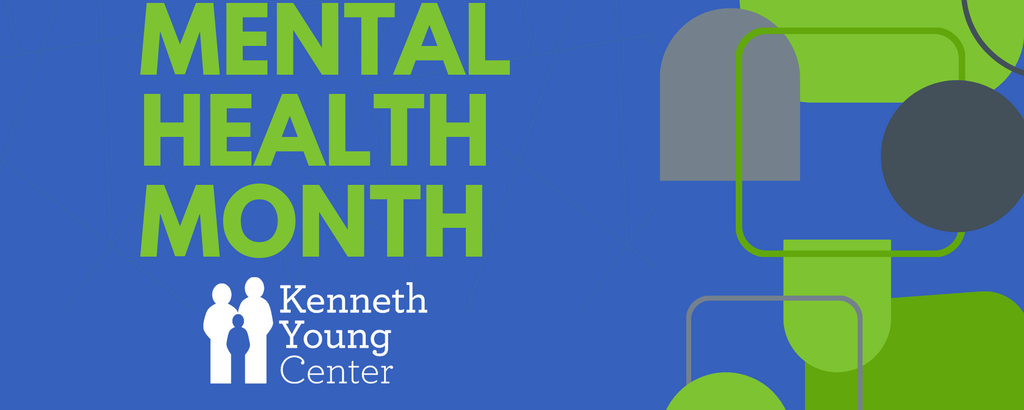
Celebrating Mental Health Month: Today and Everyday!

What is Mental Health Month and Why Do We Celebrate?
May is Mental Health Month. Mental Health Month focuses on raising awareness about the importance of mental health while also providing support and destigmatizing the bravery that is seeking care. Mental Health Month also celebrates the opportunity to uplift and recognize mental health successes. Mental health support is crucial in keeping our communities healthy. Kenneth Young Center is proud to be a part of creating innovative solutions in community mental health support this month and year round!
Mental Health Statistics
- 1 in 5 U.S. adults experience mental illness each year and only half of them receive treatment
- 50% of all lifetime mental illness begins by age 14 and 75% by age 24
- 1 in 20 U.S. adults experience serious mental illness each year
- 1 in 6 U.S. youths aged 6 – 17 experience a mental health disorder each year
- 47% of U.S. adults with mental illness and 65% of U.S. adults with serious mental illness never received treatment in 2021
- People with depression have a 40% higher risk of developing cardiovascular and metabolic diseases than the general population. People with serious mental illness are nearly twice as likely to develop these conditions.
- Students aged 6 – 17 with mental, emotional or behavioral concerns are 3x more likely to repeat a grade.
- The rate of unemployment is higher among U.S. adults who have mental illness (7.4%) compared to those who do not (4.6%)
- Depression is a leading cause of disability worldwide
- 21% of people experiencing homelessness in the U.S. have a serious mental health condition

Self Care Tips to Take Care of Your Mental Health
- Getting up and moving around
- Spending time with loved one
- Writing down what is on your mind
- Listening to music
- Getting enough sleep
- Spending time in nature
- Making time for yourself each and every day
- Eating well and & exercising regularly
- Relaxing and letting go of stress
- Practice self-compassion
- Express gratitude
- Reaching out and asking for help when you are struggling

Caring for Others While Caring for Yourself
At least 8.4 million people in the U.S. provide care to an adult with a mental or emotional health issue. Taking care of a loved one with mental or emotional health care issues can be overwhelming and isolating. Mental health care is crucial component in overall positive health outcomes. If you are a caretaker, Kenneth Young Center offers Caregiver Support Groups both virtually and in-person each month for those supporting a loved one to meet other caregivers, receive support, support others, and become empowered in your care-giving role!
Our Caregiver Support Specialist shares a tip that engaging in activities with loved ones can build a sense of community and well-being. Our Memory Café is a free monthly event for those with memory impairments and caregivers to attend together. This welcoming atmosphere allows those experiencing memory impairments a place to connect and caregivers to receive resources and suggestions during activities that promote healthy interactions!
Support is ALWAYS Avaliable!
Anyone. Anywhere. Anytime. If you need mental health support, we’re here to help by phone or in person. Visit our page here for information on how we can support you.
Previous Article Next Article

